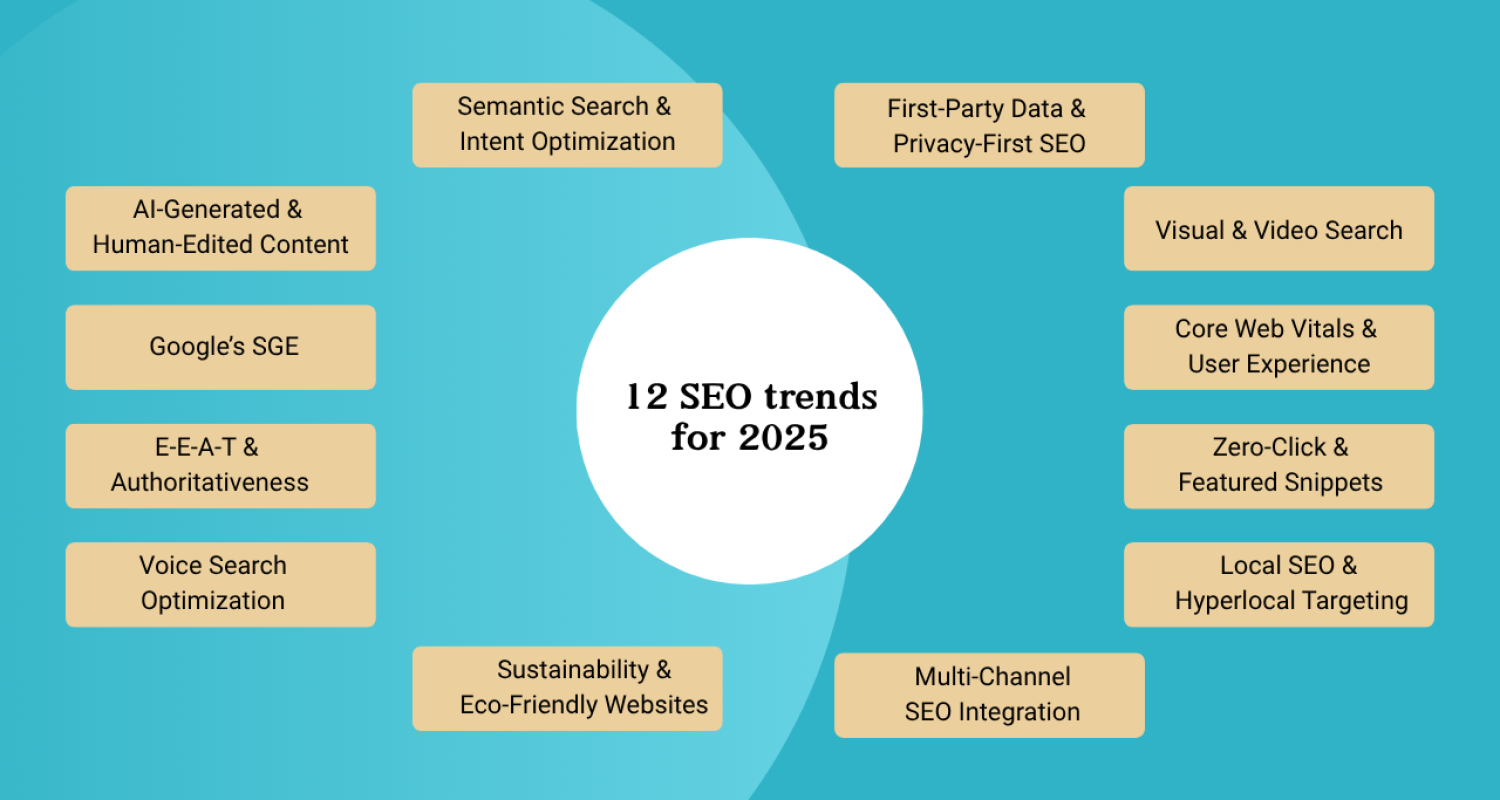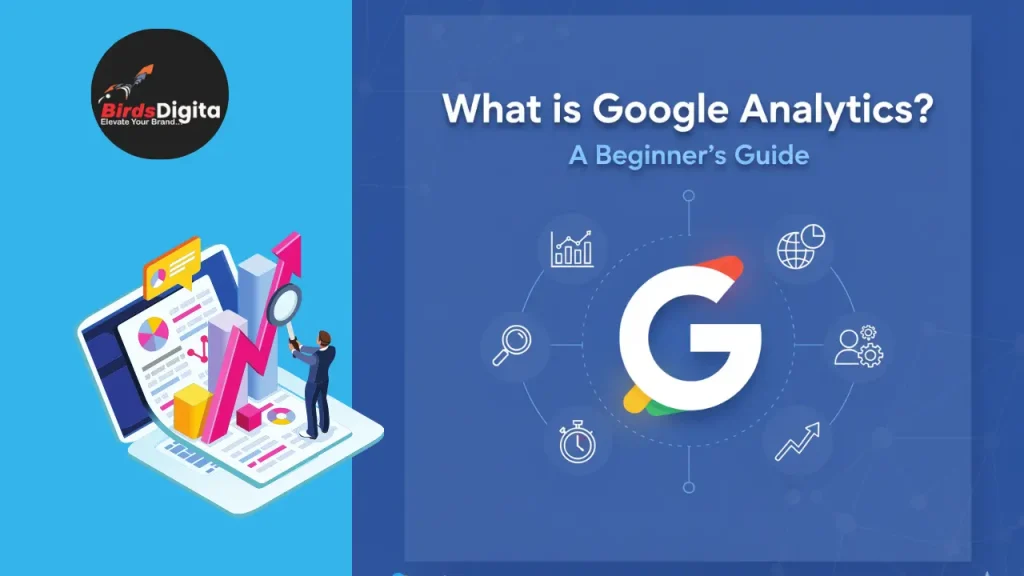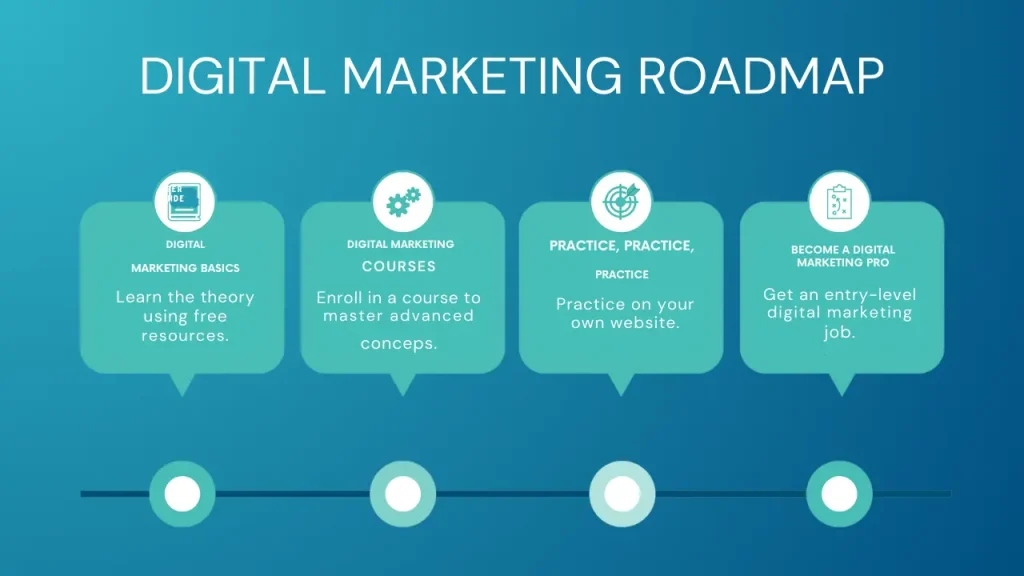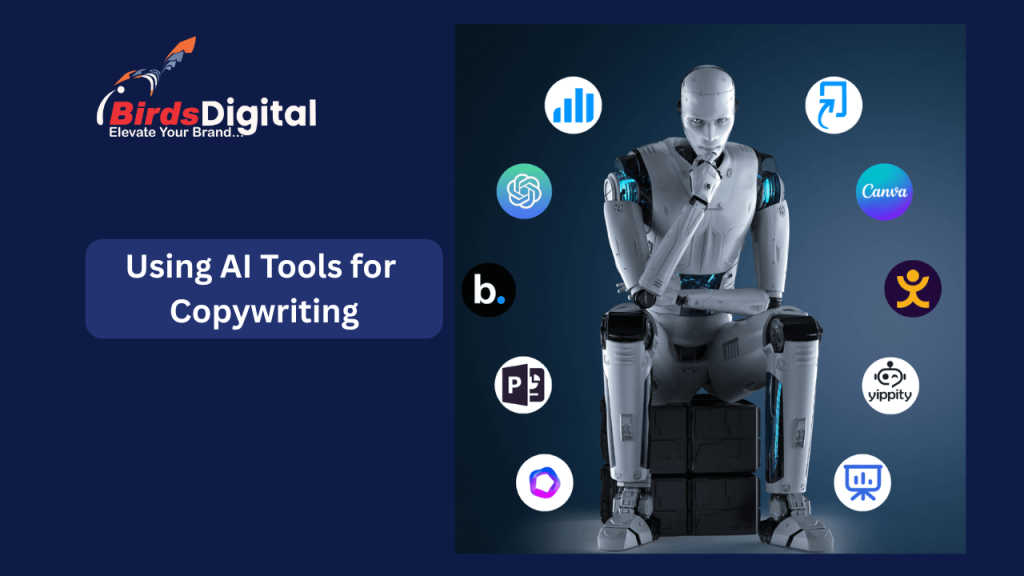SEO is changing fast in 2025. It’s no longer just about adding keywords to your website pages. Search engines now focus more on user experience, quality content, and how people actually search. Today’s SEO includes AI-powered tools like ChatGPT, mobile-first design, local SEO, voice search, and video content. To stay ahead, you must understand what works now. In this article, we share 12 key SEO statistics that show the latest trends and shifts in search behavior—along with simple tips to improve your strategy, increase visibility, and grow your traffic in this new digital landscape.
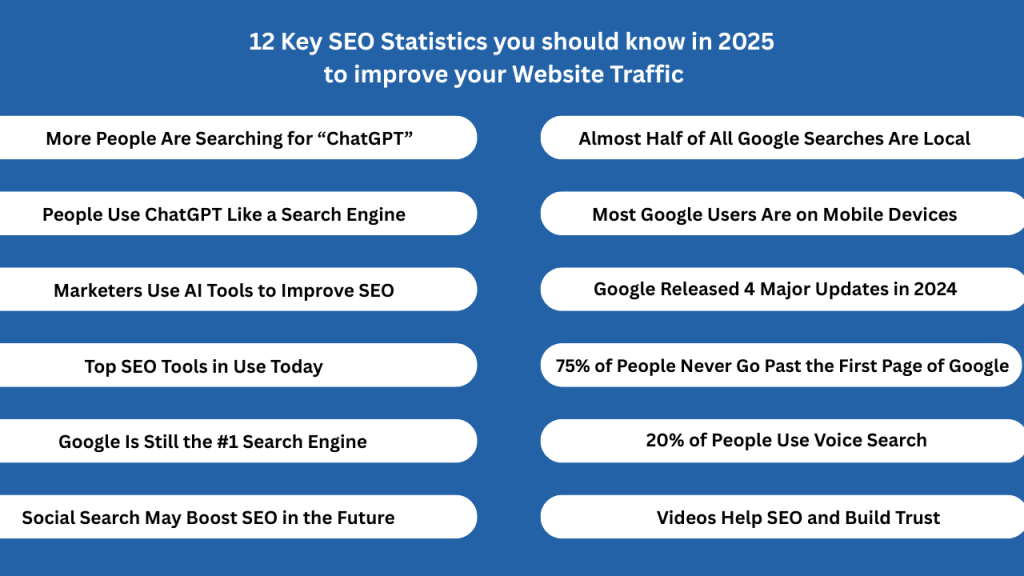
1. More People Are Searching for “ChatGPT”
In 2024, Google searches for the term “ChatGPT” reached a record high. This shows that users now prefer AI tools for getting answers to their questions. Search is shifting from typing keywords to having natural conversations. Businesses and marketers need to understand how people search through ChatGPT and create content that matches this new behavior to stay relevant in the digital search space.
2. People Use ChatGPT Like a Search Engine
A SEMrush study revealed that 54% of ChatGPT users ask questions without even enabling the SearchGPT tool. This clearly shows that many people trust ChatGPT as a search engine. As a result, SEO experts must adapt their strategies to include AI platforms like ChatGPT, in addition to Google, so they can connect with users across all popular information discovery platforms.
3. Marketers Use AI Tools to Improve SEO
Reports show that 65% of marketers see better SEO results by using AI tools, while 67% say AI improves their content writing. Popular tools like SEMrush, Surfer SEO, and ChatGPT help in keyword research, topic generation, and content planning. These tools reduce workload and help marketers create smart content that not only ranks better but also serves real user needs.
4. Top SEO Tools in Use Today
Today’s top SEO tools include SEMrush, Ahrefs, Surfer SEO, ChatGPT, MOZ Pro, Screaming Frog, and Google Search Console. These tools are widely used for keyword research, site audits, backlink tracking, and ranking analysis. By using these tools together, marketers can build a strong SEO strategy that improves site health, boosts search visibility, and increases overall website performance over time.
5. Google Is Still the #1 Search Engine
Google continues to lead with an 89.74% global search market share, while Bing holds only 4.04%. This means your SEO focus should still begin with Google. Follow Google’s latest algorithm changes, SEO best practices, and user behavior updates to stay ahead. Understanding what Google values most helps businesses optimize content and compete for higher rankings in the search results.
6. Social Search May Boost SEO in the Future
According to HubSpot, 50% of SEO experts believe Social media platforms like TikTok and Instagram will drive more content discovery in the future. Additionally, Google’s AI Overviews are expected to play a bigger role in search visibility. This shows SEO is growing beyond traditional platforms. To stay ahead, marketers must include social and AI-focused strategies in their overall SEO plans.
7. Almost Half of All Google Searches Are Local
Studies show that 46% of all searches on Google are local. People often search for nearby shops, services, or restaurants. For local businesses, this means using location-based SEO is very important. Add city names and service areas in your content, titles, and meta descriptions. This will help your business show up in local search results and bring in more nearby customers.
8. Most Google Users Are on Mobile Devices
Mobile users now make up 72.59% of all Google traffic. This means that most people are searching the web using smartphones and tablets. If your website is not mobile-friendly, it can lose rankings and traffic. Make sure your site loads quickly, adjusts to smaller screens, and provides a smooth experience on phones to meet Google’s mobile-first indexing standards.
9. Google Released 4 Major Updates in 2024
In 2024, Google launched four major updates to improve search quality. The March update was the biggest and removed a large amount of low-quality content from search results. Google reported a 45% drop in such content. To perform well in 2025, your content must be original, helpful, and focused on real user needs rather than created just for search rankings.
10. 75% of People Never Go Past the First Page of Google
A report by HubSpot shows that 75% of users never scroll past the first page of Google. Also, 28.5% of people click the very first search result. This means that if your website isn’t ranking on page one, it’s likely being missed. Focus on optimizing your SEO strategy to improve rankings, including better content, faster sites, and stronger backlinks.
11. 20% of People Use Voice Search
Google reports that 20% of users now search using voice commands. With the rise of smart speakers and voice assistants, people prefer asking questions naturally. To improve rankings in voice search, your content must be clear, simple, and answer common questions directly. Also, make sure your website is mobile-optimized and fast-loading, as these factors impact voice search visibility.
12. Videos Help SEO and Build Trust
About 88% of marketers say that videos helped them gain more leads. Videos keep people on your website longer, reduce bounce rates, and build trust with your visitors. This helps boost your SEO performance. YouTube remains the largest video search platform. Embedding helpful, high-quality videos on your website can improve rankings and create a better user experience for your audience.
Why These SEO Stats Matter
These SEO stats are more than just numbers—they show how people are searching online today. When you understand these trends, you can make smarter choices for your website. You’ll know what works, what doesn’t, and what to improve. These insights help you update your content, get more visitors, and build a better plan to grow your online traffic.
What These Stats Mean for Your Business
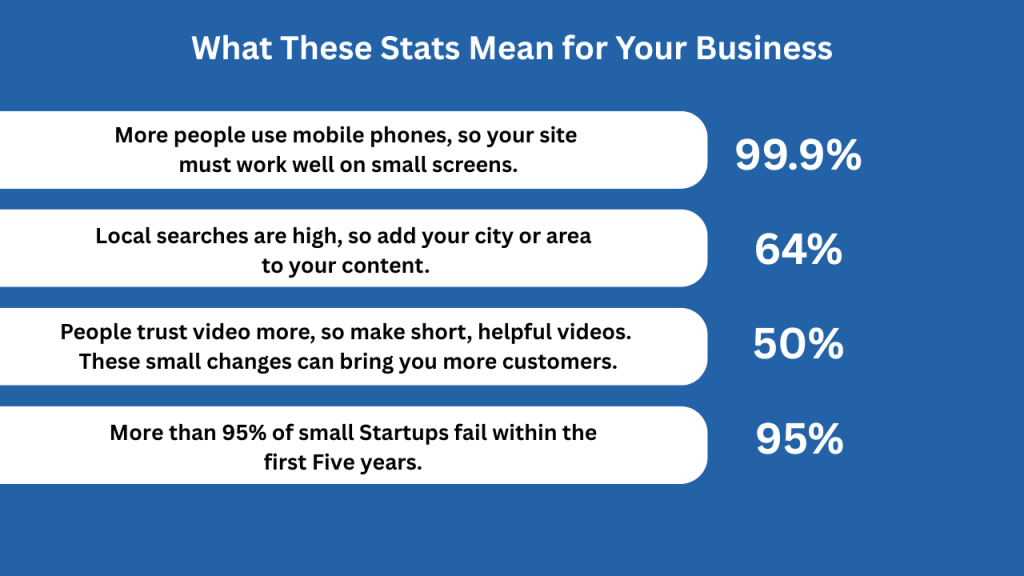
These SEO stats are important for your business. They tell you where your traffic comes from. For example:
- More people use mobile phones, so your site must work well on small screens.
- Local searches are high, so add your city or area to your content.
- People trust video more, so make short, helpful videos.
These small changes can bring you more customers.
How to Update Your SEO Strategy in 2025
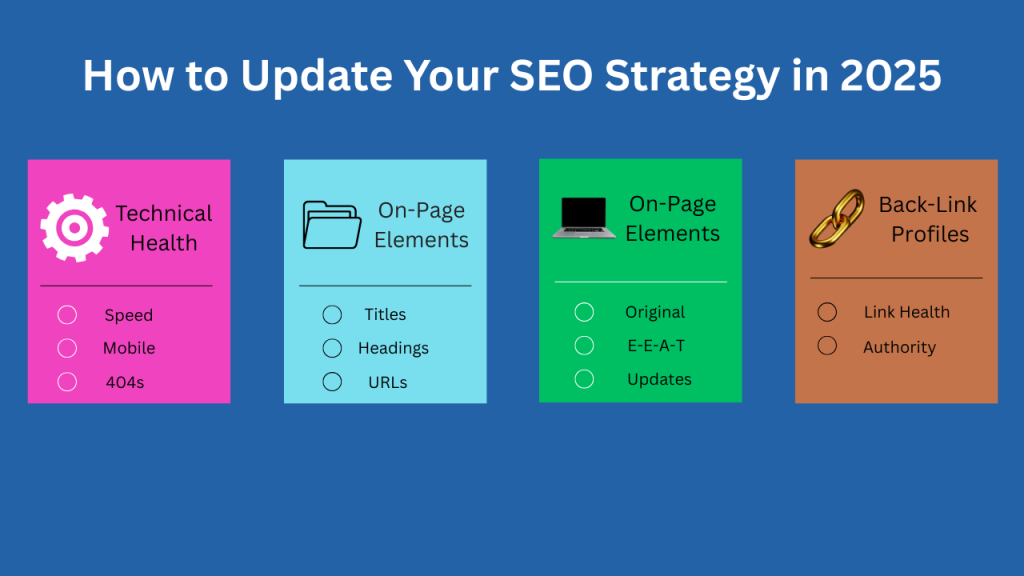
Here are some tips to improve your SEO plan this year:
- Use AI tools like ChatGPT and SEMrush for better content ideas.
- Make sure your site looks good and loads fast on phones.
- Add simple answers for voice search like “What is…” or “How to…”
- Use location names if you have a local business.
- Create short videos and add them to your website or YouTube.
These steps will help you get more traffic.
Key Takeaways
- People now use AI tools like ChatGPT to search.
- Most users search from mobile devices.
- Local searches make up nearly 50% of all searches.
- Voice search and video are growing fast.
- If your site is not on page 1, most people won’t see it.
- SEO in 2025 needs content that is clear, helpful, and mobile-ready.
Conclusion
In 2025, SEO is no longer just about using the right keywords. It now includes many new ways people search—like through AI tools such as ChatGPT, social platforms like TikTok, or smart devices using voice search. More users are on mobile, and almost half of all searches are local. So, your website must be mobile-friendly, location-aware, and filled with useful, original content.
Videos can help you build trust, and tools like SEMrush, Ahrefs, and Google Search Console can guide your SEO journey. But above all, focus on the real needs of your users. Give them answers, value, and a good experience. If you keep your SEO strategy fresh, adapt to new trends, and use the right tools, you’ll stay ahead in search results and grow your traffic in 2025 and beyond.
Frequently Asked Questions (FAQs)
Q1. Why is AI important in SEO now?
Because many people use AI tools like ChatGPT to search for answers. So, you must write content that AI tools understand and show.
Q2. Why does mobile SEO matter?
More than 70% of people use phones to search. If your site is not mobile-friendly, it may not show up in search results.
Q3. What is voice search SEO?
Voice search means people speak their questions. To rank in voice search, use simple language and answer common questions clearly.
Q4. How does video help SEO?
Videos keep people on your site longer. This tells Google your content is helpful. That’s why videos can improve your rank.

